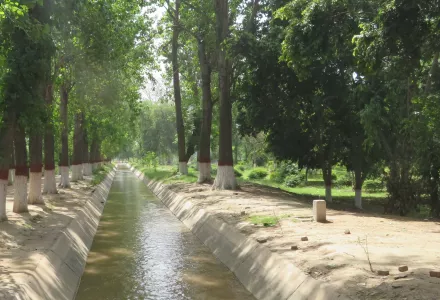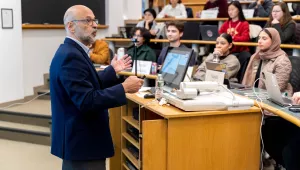
Abstract
With a rapidly growing population of 250 million, the Indus river basin in South Asia is one of the most intensively cultivated regions on Earth, highly water stressed and lacking energy security. Yet, most studies advising sustainable development policy have lacked multi-sectoral and cross-country perspectives. Here we show how the countries in the Indus basin could lower costs for development and reduce soil pollution and water stress by cooperating on water resources and electricity and food production. According to this analysis, Indus basin countries need to increase investments to US$10 billion per yr to mitigate water scarcity issues and ensure improved access to resources by 2050. These costs could shrink to US$2 billion per yr, with economic gains for all, if countries pursued more collaborative policies. Downstream regions would benefit most, with reduced food and energy costs and improved water access, while upstream regions would benefit from new energy investments. Using integrated water–energy–land analysis, this study quantifies the potential benefits of novel avenues to sustainable development arising from greater international cooperation.
Vinca, Adriano, Simon Parkinson, Keyhan Riahi, Edward Byers, Afreen Siddiqi, Abubakr Muhammad, Ansir Ilyas, Nithiyanandam Yogeswaran, Barbara Willaarts, Piotr Magnuszewski, Muhammad Awais, Andrew Rowe and Ned Djilali , "Transboundary Cooperation A Potential Route to Sustainable Development in the Indus Basin." Nature Sustainability, (2020) .
The full text of this publication is available via Nature Sustainability.




